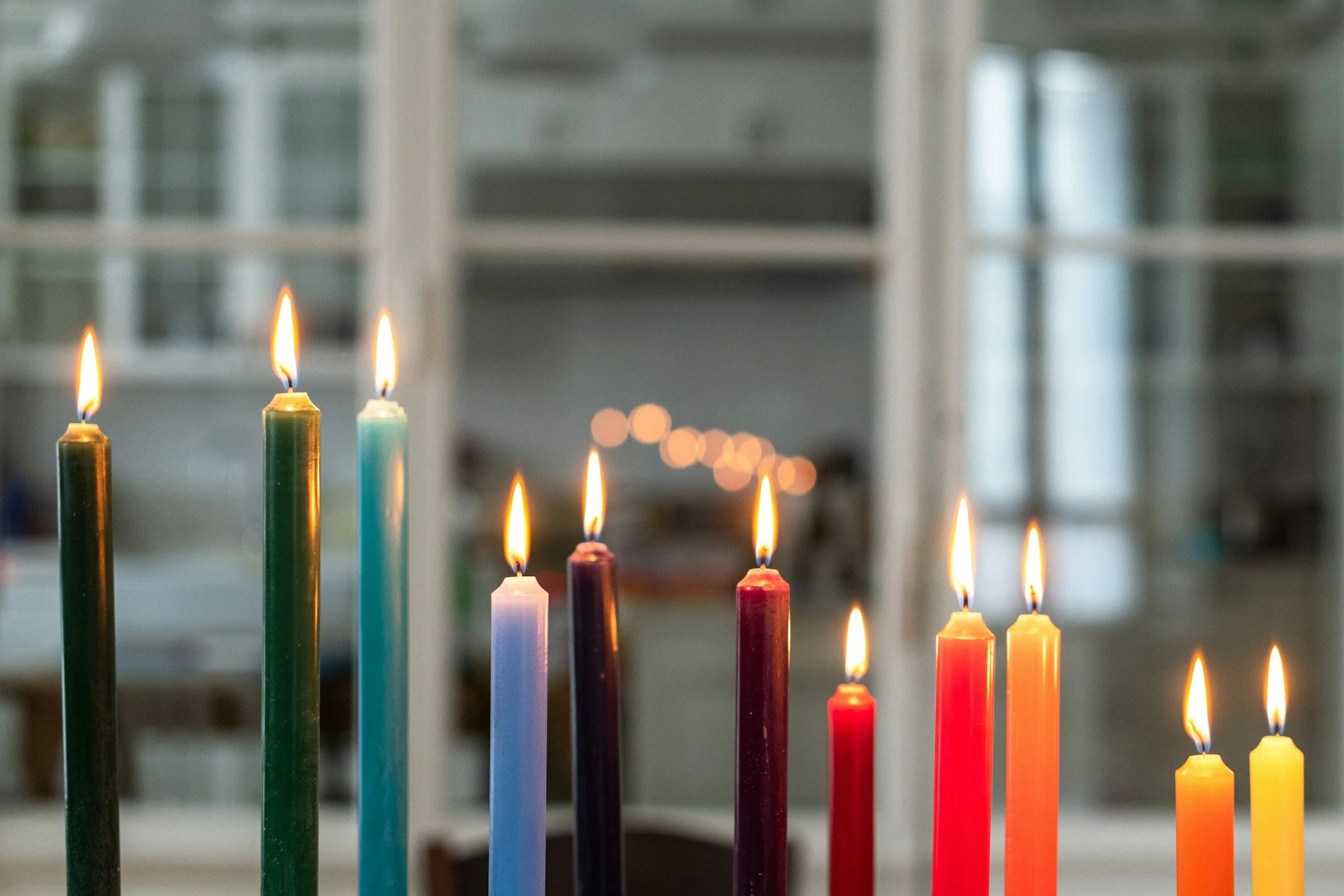When Gratitude and Grief Collide During the Holidays: A Depth Psychotherapist’s Reflection
Every November, the world around us starts humming with forced cheer.
And every November, my psychotherapy practice hits capacity.
Clients tell me—sometimes with a half-laugh, sometimes with tears sitting heavy in their throats:
“I hate the holidays.”
And I nod, because I get it.
The holidays are a strange emotional crossroads where forced gratitude and immense grief collide, where longing gets louder, and where the things we’ve survived in our families—addiction, mental illness, silence, chaos—start pressing against the inside of our ribcage.
Culture says this is the season to be joyful.
But the psyche often says otherwise.
Holiday Grief Is Real—and It Shows Up Everywhere
If you feel like the holidays turn the emotional volume up on your life, you’re not imagining it. As an Oakland therapist who specializes in grief counseling and depth psychotherapy, I see this every year.
Holiday grief often shows up as:
Missing loved ones who have died—sometimes more sharply than any other time of year
Lost or broken traditions
Loneliness that feels heavier when everyone else seems surrounded by family
Grief for what never was—the childhood you didn’t get, the love you hoped for, the family that never formed
Financial strain that feels humiliating or impossible
Dysfunctional family patterns that get louder—drinking, microaggressions, unspoken resentments, volatility, emotional distance
Substance use that spikes as a way to cope
People often whisper, almost ashamed:
“I dread going home.”
“I think I hate my family.”
“I’m so depressed right now.”
This is what happens when the world expects joy while your nervous system is bracing for impact.
Why Gratitude Lists Don’t Always Work During the Holidays
I love gratitude. I practice it. I return to it often.
But gratitude lists can fall flat—or even backfire—when the holidays stir up old wounds.
Here’s why:
1. Gratitude can become a form of gaslighting.
People think:
“I should be grateful, so why am I sad? What’s wrong with me?”
Nothing.
Gratitude cannot erase grief.
2. Gratitude doesn’t override the truth of your childhood.
If your family was unstable, critical, distant, or unsafe, the holidays will activate those memories.
No list can soothe the inner child who never had someone to hold them.
3. Gratitude cannot compete with pressure.
The pressure to make things perfect—beautiful meals, perfect gifts, emotional harmony—falls disproportionately on women.
Women come into therapy exhausted, carrying the invisible emotional labor of holding everyone together.
Gratitude doesn’t fix bone-deep overwhelm.
4. Gratitude isn’t a cure for disappointment.
This season carries expectations—how love should feel, how family should behave, how gatherings should go.
And disappointment can be devastating, especially when you’ve spent a lifetime hoping this year might be different.
The Holidays Are Especially Hard on Caretakers—and Most of Them Are Women
Women often tell me:
“Everyone depends on me.”
“I’m the one who keeps the peace.”
“I do all the work.”
The holidays are like a magnifying glass on invisible labor.
Caretakers, helpers, therapists, mothers, daughters, aunties—people who already give so much—are expected to give even more.
No wonder so many of them feel empty by January.
In Therapy, Both Gratitude and Grief Are Allowed to Sit at the Same Table
My office becomes a refuge during this season.
A place where clients can stop pretending.
A place where truth gets to breathe.
Sometimes gratitude arrives—softly, honestly.
Sometimes grief takes up the whole room.
And this is the part I return to again and again:
You can be grateful for what you have and still grieve what you lost, what you never received, and what you still long for.
Gratitude does not cancel grief.
Grief does not cancel gratitude.
Both are real.
Both are human.
Both belong.
So How Do You Take Care of Yourself During the Holidays?
Here’s what I tell my clients, and what I tell myself:
1. Let the holidays be what you need them to be.
Quiet. Small. Boundaried.
Filled with chosen family, not compulsory gatherings.
Made of simple rituals that soothe rather than overwhelm.
2. Honor what hurts instead of pretending it shouldn’t.
Grief softens when we stop arguing with it.
3. Allow disappointment to be named.
Naming is not negativity—it’s liberation.
4. Give yourself permission to not be the emotional caretaker.
Or at least: not the only one.
5. Let your holidays be real, not perfect.
Perfection is a performance.
Realness is what heals.
If You’re Struggling This Holiday Season, You’re Not Alone
Holiday grief doesn’t mean you’re failing.
It means you’re human.
If you’re navigating loss, loneliness, family dysfunction, or the pressure to hold it all together, therapy can help you make meaning, set boundaries, and create a holiday season that feels more aligned with who you are—not who the world expects you to be.
As an Oakland therapist specializing in grief, trauma, and depth psychotherapy, this is the work I do every day—especially during this season.
Your grief is welcome here.
Your gratitude too.
Both can coexist.
Both can be true.

